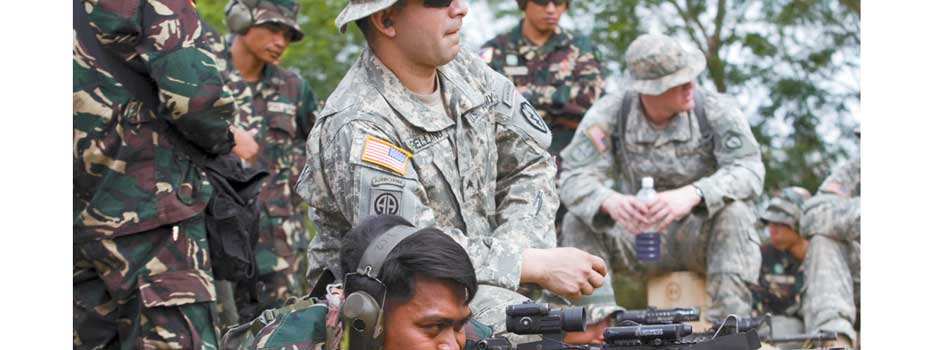 Commission on Elections (COMELEC) continuously reminded the candidates for the 2013 Midterm Elections to strictly follow campaign laws.
Commission on Elections (COMELEC) continuously reminded the candidates for the 2013 Midterm Elections to strictly follow campaign laws.
Two weeks after the start of the official campaign period of Senatorial candidates and Party- List Representatives, the poll body had already seen violators throughout the country especially in putting up campaign materials on prohibited places.
COMELEC Resolution 9615, identifying common poster areas, prohibits the posting of campaign materials on waiting sheds, side-walks, lampposts, electric posts and wires, traffic signages and other signboards erected on public property, pedestrian overpasses and underpasses, flyovers, bridges, main thoroughfares, centre islands of roads and highways.
Also prohibited is election propaganda on public utility vehicles and names, images, logo and initials of candidates in government or red plated vehicles.
According to COMELEC spokesperson James Jimenez, they would immediately send notices to the candidates who violated the said rule and will have three days, upon receipt of notice, to remove posters.
If these candidates fail to remove their campaign materials, the COMELEC would initiate disqualification proceedings against them.
Moreover, failure to remove illegal campaign propaganda constitutes an election offense that is punishable under Section 264 of the Omnibus Election Code which states that any person found guilty of any election offense shall be punished with imprisonment from one to six years and shall not be subject to probation.
Despite the warning, COMELEC had already a list of violators and had sent notices to four senatorial candidates and eight party-list representatives guilty of the violation.
The candidates who were sent notices are Liberal Party bets Risa Hontiveros, and Representative Sonny Angara, independent candidate Edward Hagedorn, and Teddy Casino.
While, Buhay Hayaan Yumabong (Buhay) party list, Kabataan and LPG Marketers Association (LPGMA), Pwersa ng Bayaning Atleta (PBA), 1 Joint Alliance of Marginalized Group Inc. (1JAMg), Piston Land Transportation Coalition, Inc., Anak Mindanao and Sanlakas were party-list groups violators.
Meanwhile, online campaigning is also being closely monitored by the commission; wherein online propaganda can only be published thrice a week, and allows advertisements in the form of pop-ups, banners and the like. This is the first election where the COMELEC has regulated online campaigning.
And just recently, Senatoriable Jamby Madrigal is under COMELEC’s probe because of an election offense for illegal campaigning in cyberspace. Madrigal was supposedly holding a contest through the social networking sites Facebook and Twitter wherein a winner would be given an iPad.
The said incident could be seen as an offense against Section 104 of the Omnibus Election Code which states that “no candidate, his or her spouse or any relative within the second civil degree of consanguinity or affinity, or his campaign manager, agent or representative shall, during the campaign period, on the day before and on the day of the election, directly or indirectly… make any donation, contribution or gift in cash or in kind.”
The former senator apologised to the COMELEC and declared that the contest was initiated by her volunteers. She assured the poll body and the public that such incident will not be repeated and immediately ceased the online contest.
Broadcast political advertisements were also regulated by the commission for candidates running for national posts.
They will only be allowed 120 minutes of airtime and 180 minutes on radio to air their campaign ads. TV guesting may also be charged to the candidate’s total airtime.
According to COMELEC Chairman Sixto Brillantes Jr., the said directive is under the new implementing rules and regulations of Republic Act 9006 or the Fair Elections Act, campaign ads in both television and radio are now “aggregate” and no longer per station, which was the practice in previous elections.
Radio and TV stations are required to report and furnish their broadcast advertisement contract.
All these measures were intended to correct mistakes from the previous elections in the Philippines. They also try to enhance and secure the holding of free, orderly, honest, peaceful and credible elections in which future leaders of the country are expected to follow.







Leave a Reply